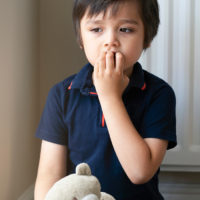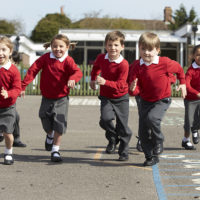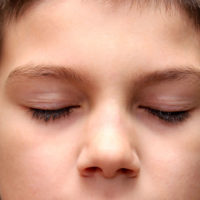Anxiety
-

CBT and sertraline are effective treatments for paediatric anxiety, but how do they work?
Matti Cervin and colleagues analysed data from the largest RCT for paediatric anxiety disorders to examine how these treatments affect different domains of anxiety
Read more -

Assessing and treating anxiety disorders: does one size really fit all?
Researchers first describe how anxiety disorders might develop and be maintained, and then focus on the various assessment and treatment considerations for children and adolescents with anxiety disorders.
Read more -

Can ‘FRIENDS’ in school help prevent anxiety?
Researchers in Norway have assessed whether the FRIENDS programme is best used as a prevention measure or as a treatment approach for anxiety in school-aged children.
Read more -
تؤثر أعراض قلق الطفل علي الأمهات من خلال آليات بيئية
Intergenerational anxiety associations in families are well reported, but the underlying mechanisms of anxiety transmission are unclear. Now, researchers in the UK and the USA have conducted the first genetically sensitive study to explore the effects of genetic and environmental anxiety transmission in families during middle childhood.
Read more -

Mindfulness-based interventions improve depression and anxiety outcomes in youths
In 2019, Darren Dunning and colleagues compiled a Research Review for the Journal of Child Psychology and Psychiatry in which they evaluated, for the first time, the efficacy of MBIs on cognition and mental health in adolescents <18 years-of-age.
Read more -

The association between anxiety and poor school attendance
School plays a key role in children’s development, and frequent absence from school increases the likelihood of a range of adverse outcomes in childhood and later life. This includes poor academic performance, social isolation, economic deprivation and unemployment in adulthood. There are many risk factors for frequent school absence, including factors related to the child and their family, school and community.
Read more -
Adult ABMT protocols need adapting for effective use in children
Attention bias modification treatment (ABMT) aims to target attention biases in threat processing in patients with anxiety1. While ABMT seems to be effective in adults with social anxiety disorder (SAD),2,3 its effect in youths with SAD and the potential treatment moderators are unclear. In 2016, Lee Pergamin-Hight and colleagues conducted a randomised controlled trial to explore the efficacy of ABMT in youths and the influence of possible moderators of treatment outcomes.
Read more -

Parent-led group CBT training can reduce anxiety in children
A brief psychological intervention in which parents and carers are supported in applying cognitive behavioural therapy (CBT) principles in their child’s day-to-day life can lead to good outcomes for child anxiety disorders, according to new research.
Read more -

FRIENDS programme reduced anxiety, but has no effect on school academic performance
Professor Paul Stallard and colleagues have analysed data from the randomised controlled trial “Preventing Anxiety in Children through Education in Schools” that involved >1,300 children aged 9-10 years from 40 primary schools across England.
Read more -

MEG confirms hyper-vigilance followed by threat avoidance in children with anxiety disorder
A key etiological factor of anxiety disorders is an altered pattern of threat processing, but its neurobiological basis is relatively unclear.
Read more